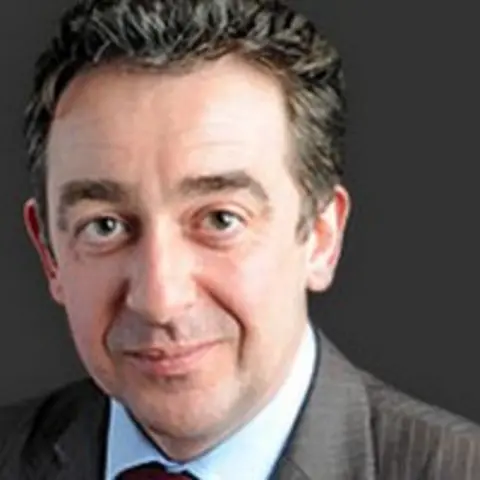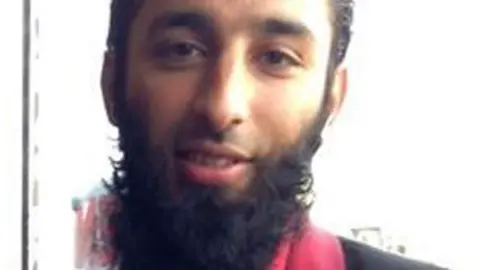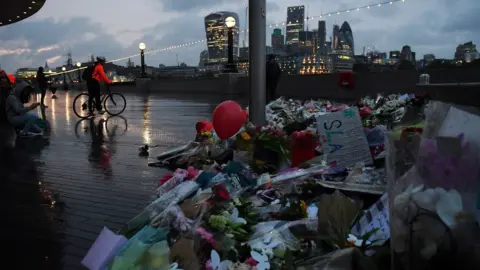London attacker: Khuram Butt showed his extremist colours

 UNKNOWN
UNKNOWNKhuram Butt wore an Arsenal shirt during his murderous assault on other Londoners.
Some of those whom he wanted to kill may too have been wearing the club's colours.
But his real colours were the same as many other major terror suspects of the last few years.
He was a follower of the banned al-Muhajiroun network, led by the now-jailed preacher Anjem Choudary.
Butt was 27 years old, born in April 1990 in Pakistan. He was a British citizen and had lived in east London for a number of years. He was married with two children.
His online CV describes him as having an NVQ Level 2 in business administration and he went on to work in 2012 for a company that manages Kentucky Fried Chicken outlets.
Transport for London has confirmed he worked for almost six months in 2016 as a trainee customer services assistant, leaving in October. He was also once the sole director of a now-dissolved company called Kool Kosmetics.
 AFP
AFPIt's still not clear when he got involved in radical Islamist politics, but there is ample evidence that he was involved in the al-Muhajiroun network - certainly in 2015 and potentially at least two years earlier still.
The main evidence comes from his appearance in a Channel 4 documentary, The Jihadis Next Door, broadcast last year.
The film was a close encounter with part of the ALM network and one of its subjects was Siddhartha Dhar, one of Anjem Choudary's right-hand men.
Dhar later skipped bail for Syria.
Once there, he appeared in a black mask in an IS execution video.
In the documentary, Butt appears in one of the key scenes with others from the group angrily arguing with a police officer who said there had been a call that the men had displayed an "ISIS-looking flag" in one of London's parks.
'Called me a traitor'
Another key figure in the film is Abu Haleema, who has been subject to intensive monitoring by the security services after they discovered his close contacts with a teenager - later to become the youngest child in Britain to be convicted of a terrorism offence.
Butt's links may go back further still. Mohammed Shafiq of the Manchester-based Ramadhan Foundation, an anti-extremism group, says that he believes he was verbally assaulted by Butt in 2013 - the day after another ALM follower killed Fusilier Lee Rigby in Woolwich, south-east London.
"Khuram Butt called me a 'Murtad', which means traitor in Arabic, and accused me of being a government stooge when I confronted Anjem Choudary about him supporting terrorism," he says.
"The police turned up and Anjem, Khuram Butt and two other men were escorted away. I am not surprised that Khuram Butt carried out the terrorist attack and there are serious questions for the authorities."
In Barking, east London, one resident, Erica Gasparri, told the BBC she had her own concerns that Butt and three other men had been attempting to radicalise her children.
She told our team that she went to Barking police station about a year to a year-and-a-half ago with photos of the men and explained her concerns.
Another man - who did not want to be identified - told the BBC that Butt had expressed his disgust at the "scantily clad" way some women were dressed during his time at Transport for London.
That man was so worried by his extreme views - including apparent support for an American online advocate for the Syrian jihad - that he called the anti-terror hotline.
Butt also appears to have taken part in a confrontational ALM network campaign in 2015 to intimidate Muslims into not voting, on the basis that it was forbidden by God.
When he interrupted an Imam at the local Jabir Bin Zayid Mosque after the subject of voting was raised, he was asked to leave.
Under investigation
So did the police or MI5 miss something?
According to Scotland Yard, he became known to both in the summer of 2015 - but there was no intelligence that he was then plotting.
An investigation was opened into his behaviour after concerns had reached counter-terrorism officers. He became one of the 500 active investigations on the go at any one time.
After that file was opened, there was a call from a member of the public about Butt's radicalisation - but it didn't lead to any intelligence that there was definitely something going on.
It's not clear when that call came in - and what other cases were pressing - but ultimately Butt was not considered a priority and he was placed in the lower echelons of the long list of individuals under investigation.
Critically, that meant Butt would attract less investigatory resources.
The question is whether there was, at the time, anything in his covert communications that might have led to a different decision, had it been known.
